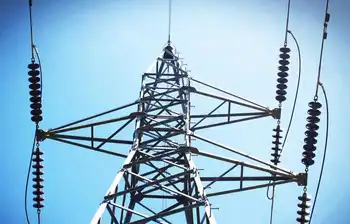Utility Bills May Drop Next Year
By The Tampa Tribune
Protective Relay Training - Basic
Our customized live online or in‑person group training can be delivered to your staff at your location.

- Live Online
- 12 hours Instructor-led
- Group Training Available
Progress Energy Florida and Tampa Electric, the two largest utilities in the Bay area, both said they expect to pay less next year for natural gas, coal and other fuels they use to produce electricity and hope to pass the savings on to customers.
The utilities submitted their projections for fuel costs in 2008 to the Florida Public Service Commission, which regulates utilities in the state.
If approved, residential customers of Tampa Electric would see bills drop 16 cents to $114.38 per 1,000 kilowatt-hours of electricity they consume.
Most residential customers use more electricity than that, especially during the summer.
Tampa Electric's residential customers use, on average, 1,250 kilowatt-hours a month.
The utility said it expects the cost of fuel and purchased power won't be volatile next year, so it will be able to pass savings on to its residential customers. The utility serves 666,219 residential and commercial customers in Hillsborough County and parts of Pasco, Polk and Pinellas counties.
The last time Tampa Electric reduced customer bills was in January 2005.
Fuel costs "finally appear to be stabilizing," Tampa Electric President Chuck Black said in a statement. "We expect that they will remain at current levels for the balance of 2007 and throughout 2008."
Electric utilities aren't allowed to make money from the purchase of natural gas, coal and other fuels used to generate electricity. Those costs must be passed on to customers without any markup.
Under Progress Energy's proposal, electric bills for residential customers would drop $2.27, or about 2 percent, to $108.07 for every 1,000 kilowatt-hours of consumption. The reduction is based on a $151 million decrease in fuel and other operating costs, the utility said.
The last time Progress Energy lowered residential bills was in July 2002.
"We maintain the most diversified fuel mix of any utility in the state, and are pleased that our fuel procurement practices and strategiesÂ… are paying dividends for our customers," Jeff Lyash, CEO of Progress Energy Florida, said in a statement.
Progress Energy provides power to nearly 1.7 million customers in 35 counties in northern and Central Florida, including most of Pinellas County.
The state Public Service Commission must approve the proposals. If it does, the rates would become effective Jan. 1.
Meanwhile, Florida Power & Light Co., the state's largest electric utility, said its residential customers would save nearly $1 a month under a proposed fuel chargeplan it filed with the PSC. Based on 1,000 kilowatt-hours of consumption, the average bill of an FP&L customer would drop 94 cents, or less than 1 percent, to $102.49.
FP&L officials attributed the decrease to lower natural gas costs and greater efficiency from its power plants.











